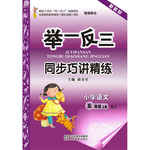题目内容
"Mom, come here! There's this lady here my size!"
The mother rushed to her son; then she turned to me to apologize.
I smiled and told her, "It's okay." Then I talked to the boy, "Hi, I'm Darryl Kramer. How are you?"
He studied me from head to toe, and asked, "Are you a little mommy?"
"Yes, I have a son," I answered.
"Why are you so little?" he asked.
"It's the way I was born," I said. "Some people are little. Some are tall. I'm just not going to grow any
bigger." After I answered his other questions, I shook the boy's hand, and left.
My life as a little person is filled with stories like that. I enjoy talking to children and explaining why I
look different from their parents.
It takes only one glance to see my uniqueness. I stand three feet nine inches tall. I was born an
achondroplasia dwarf (侏儒). Despite this, I did all the things other kids did when I was growing up.
I didn't realize how short I was until I started school. Some kids picked on me, calling me names. Then
I knew. I began to hate the first day of school each year. New students would always stare at me as I
struggled to climb the school bus stairs.
But I learned to smile and accept the fact that I was going to be noticed my whole life. I decided to make
my uniqueness an advantage rather than a disadvantage. What I lacked in height, I made up for in personality.
I'm 47 now, and the stares have not diminished as I've grown older. People are amazed when they see
me driving. I try to keep a good attitude. When people are rude, I remind myself, "Look what else I have-a
great family, nice friends."
It's the children's questions that make my life special. I enjoy answering their questions. My hope is that
I will encourage them to accept their peers (a person of the same age, class, position, etc.), whatever size and
shape they come in, and treat them with respect.
B. Because the boy laughed at the author.
C. Because the boy said the author was fatter than him.
D. Because the mother thought the boy's words had hurt the author.
B. When she was 47 years old.
C. When she began to go to school.
D. When she met the boy in the supermarket.
B. increased
C. decreased
D. discriminated
B. Calm.
C. Painful.
D. Discouraged.

 举一反三同步巧讲精练系列答案
举一反三同步巧讲精练系列答案 口算与应用题卡系列答案
口算与应用题卡系列答案 名师点睛字词句段篇系列答案
名师点睛字词句段篇系列答案
| |||||||||||||||||||||||||||||||||||||||||||||